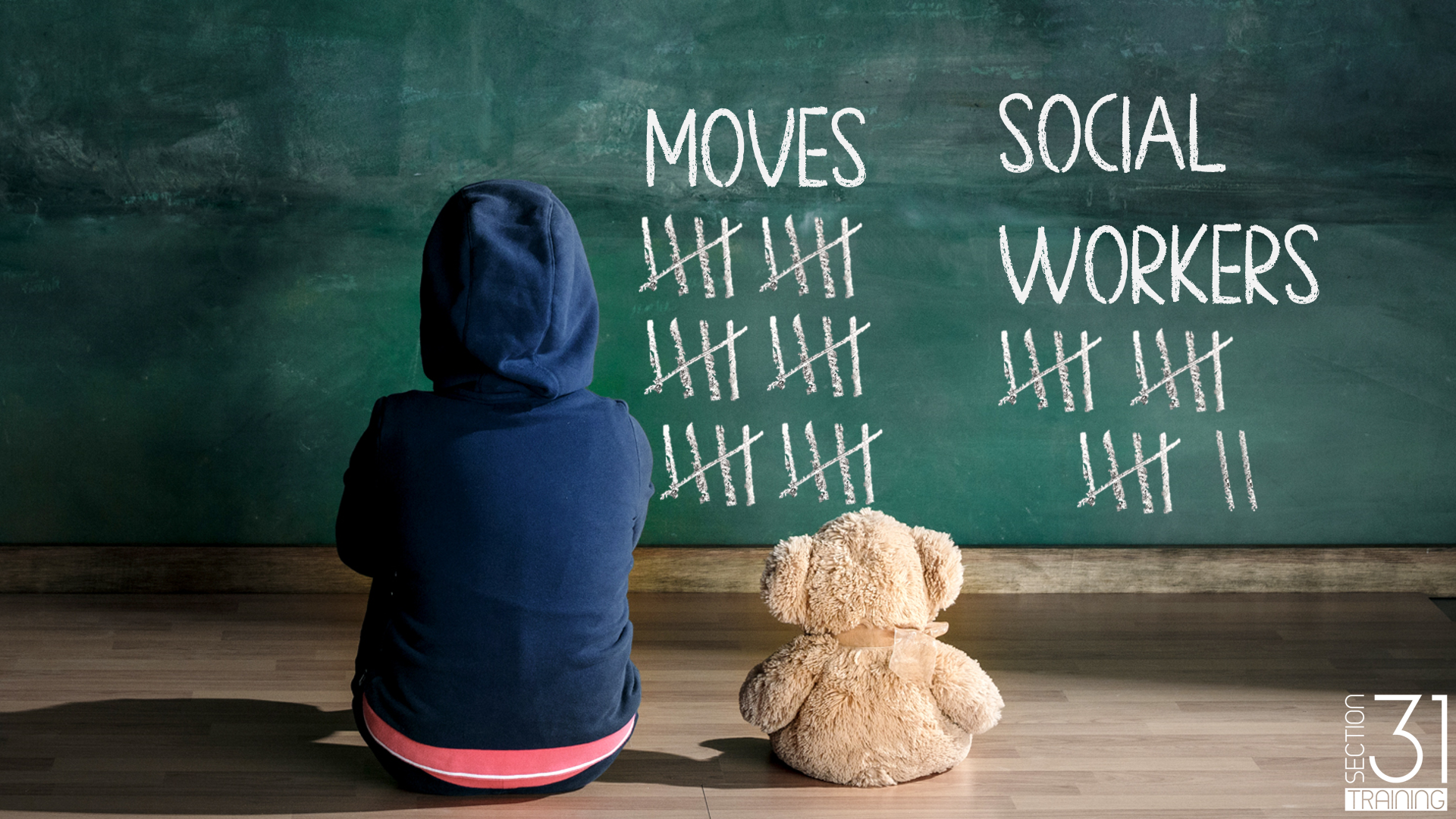
Posted by Scott King
Growing up as a kid of the system I never really liked social workers. It always felt like social workers only ever came to see me to take something, break something, change something or to bring some kind of bad news.
I remember being torn from homes by social workers, I remember coming home from school one day to find out that social workers had taken my brother from me, I remember being left to rot in abusive homes, I remember social workers telling me I can’t see people I loved anymore and I remember the countless times I begged social workers for things that never happened. I remember feeling ignored, powerless and worthless. Every painful memory, every trauma I had endured stemmed from a decision a social worker had made. Although I don’t remember every social worker I remember everything they did.
Although some social workers stayed in my life for a few years many only stayed for a few weeks or a few months. Some I only saw once and never again. They were the face of a system I had grown to hate, a system I grew to fear. They were the author of my past and the director of my future, I lived in the wake of their decisions and they controlled every element of my existence. Even though it was the foster carers who I saw everyday, even they would always say “ask your social worker” whenever I wanted something done. I remember times where I couldn’t go to friends birthday parties because my social worker needed to give permission. They literally controlled everything.
Every new social worker that came into my life spoke to me like they knew me when really all they knew is what people had said about me or written about me, they didn’t know the real me. They knew about every behaviour I exhibited, they knew all my disorders but didn’t even know what my favourite colour was, they didn’t know what my teddy bear was called, they didn’t know about my amazing collection of shiny Pokémon cards. They didn’t tell me when a new one was coming, they didn’t tell me when an old one was leaving. To me they were the God squad, they had all the control but knew nothing of who I was, what I wanted or what I really needed. It seemed like all they were ever interested in was fixing my behaviour or telling me what they thought was “for the best”. My foster carers would get out the posh biscuits and boil the kettle whilst talking about me. They asked my views on things but, I didn’t give them much because what do they care? They don’t listen, they don’t act, they will always do what they want with me because they “know what’s best”. I had a deeply embedded mistrust in them and I will be honest, I hated them.
Social workers would always tell me “it’s for the best” but time and time again they had proven to me that is never the case. They robbed me of my identity, took everyone and everything I cared about away from me and not once did I receive an apology. It was always about what I had done wrong with no acceptance whatsoever of what they and their system had done to me. They would send me to therapy and tell me I had “attachment issues” but they were the ones who caused me to have those issues, they were the ones who would constantly pull my whole world away from under my feet just as I was starting to spread my roots, they were the ones who left me without telling me, they were the ones who took everyone I loved from me. They would tell me about my behavioural issues like it was all my fault, like they did no wrong and through that they made me hate myself, they made me harm myself and there were times where I just didn’t want to be alive. One social worker even told my brother that it was my fault that we didn’t get adopted, those words eventually tore us apart. Social workers have been in my life for as long as I can remember and everything that went wrong in my life I blamed on them.
At the time of writing this I am 31 years old and I do not hate social workers anymore. I respect them and want to support them wherever I can. I do not believe that social worker bashing is going to achieve anything more than a release of frustration. Yes, moaning about them and letting it all out may make a person feel better for a bit, but it doesn’t change anything and attacking people with dark words is not the best way to help them see the light. People have been bashing social workers for years and nothing has changed. Saying that though, I completely empathise with where this frustration comes from and I think social workers need to empathise with that too.
I feel it is important to help social workers understand the service user perspective beyond the swear words, frowns and gritted teeth so they can see that they, as a human being are not hated, the social worker is. It is not personal, and despite all of the red tape and pressures that the system is under, social workers can do so much more to improve their practice and show those they care for that they are not the enemy.
I realise now that I never hated the people, I hated the social worker, I hated what they represented, I hated the system I was in. Social workers must understand that their title is a barrier within itself.
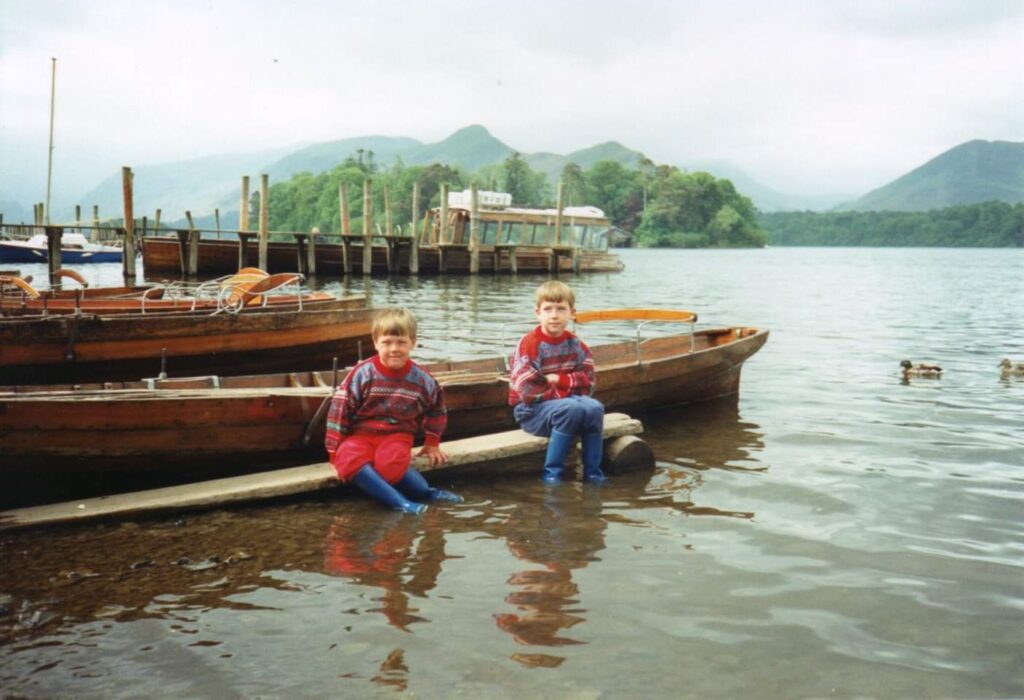
Ben & I in the Lake District with our “forever family”. We were placed back into foster care within a year after the adoption had “failed”
I was taken into care when I was just six months old along with my brother who was three at the time. The main reason for us entering the system was due to emotional abuse and neglect. In short, my dad was violent and my mum was too wrapped up in getting her own selfish needs met, so we always came second. She made no effort to get us back when we were taken, she instead focused on replacing us and our Dad with a new “hubby” and two new children. We were left in the system and forgotten.
We were taken into care to protect us from all of that, with adoption being the grand plan. The adoption failed and we were passed from home to home, from social worker to social worker. By the end I had moved home thirty six times, I had experienced a failed adoption, my brother was taken away from me, those who I grew to love were taken from me and we were both placed in abusive foster homes.
We never left care, care left us, and when it did we found ourselves homeless thinking to ourselves, what was the point of all of that? We were taken into care to protect us from emotional abuse and neglect, yet in the end we experienced 18 years of indirect systematic emotional abuse. Then, because of our biological age, we were cast out of the system and neglected. What happened to us did not need to happen and much of it was easily preventable. We always thought this was just us that had this kind of life, we realise now that stories similar to ours are worryingly common.
After finding our birth parents later on in life we can look back on our past and honestly say that we are grateful for being taken into care initially. That did need to happen and we are glad it did, but we were only able to realise that later on in life. What happened whilst in care emotionally destroyed us and ejected us at the end with more trauma and mental health problems than we entered with. We still live with many scars that were inflicted on us throughout our lives and we have learned to accept that we must learn to live with that. You never get over it but you can get through it.
Ultimately though, It is not where we come from that burned us, it is what we went through. The system failed us but because we are not in jail, on drugs or putting the next generation of our family into the system we are statistically a success and despite official complaints, nobody has even taken any responsibility for what happened to us.
Seeing as everything that happened stemmed from decisions social workers made we blamed them for everything. They were the catalyst.
Our entire journey is presented in my online course Growing Up In Care: Lived Experience which can be accessed here. In that course I bare my soul and talk about everything that happened and everything that was learned from it. From that you will see that despite our past we both prevailed in the face of adversity, we recovered, we not only survived but we succeeded in life. But our successes were not due to the actions of social workers.
Luckily for us we had people, namely certain foster carers, who along the way taught us we are better, who planted the seeds that grew into who we are today.
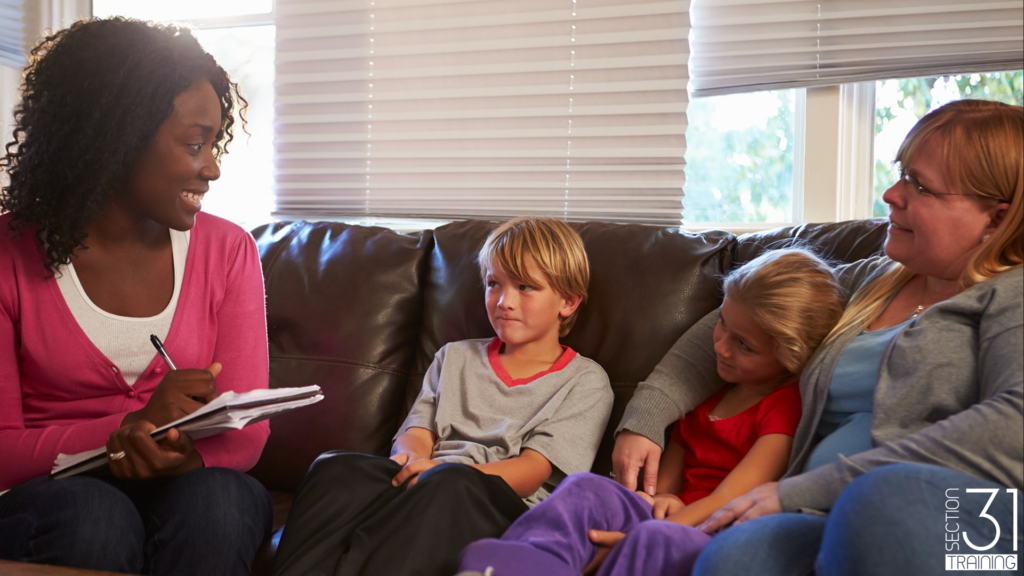
Kids in care do not understand the bureaucracy of it all, the legislation, the policies. They don’t really care either.
Ever since I have left this system I have worked within it, in various different roles. I spent many years working in children’s homes, working alongside child protection teams and care leaving services. I have travelled the length and breadth of the United Kingdom delivering training to foster carers and social workers and I have been involved in many parliamentary groups trying to improve outcomes for young people leaving care. Through doing so I have met countless social workers in a professional capacity and I’ve got to know many of them on a personal level. This experience of both service receiver and service provider has given me great insight into how this care system works and how to improve it.
After spending so many years living and working in this system, learning to understand it from both sides of the table I no longer hate social workers, I respect them and realise that in general, social workers are not bad people, many just lack understanding. I realise that social workers do not sit in an office chuckling to themselves thinking about which sharp rock they should throw at children next. The majority of social workers, in fact I’d say a good 98% of them do really care and want to make a positive difference. Yes there are a few rogues out there that just want to get their mortgage paid, who let the power get to their head, who have their own agenda but I have come to realise that this is a vast system and those rogues are a minority, they do not represent the social work profession as a whole and we can’t tar them all with the same brush. This system is a complicated one, one that even through living my whole life within it, was hard to understand fully.
You see, as a kid in care you do not understand the bureaucracy of it all, the legislation, the policies, you don’t really care either. As a kid, if a social worker failed to turn up or didn’t arrange that contact I had asked for I didn’t sit there and think about how busy they must be, the pressures they are under, the ridiculous caseload they were juggling, the fact that they are often made to do things they don’t even want to do. I couldn’t empathise with that, and really, should I have been expected to? From my perspective, the social worker is there or they are not, they do or they don’t. I was too busy surviving my own life to be thinking about how there’s might be going. All I thought is that these people control everything and when things aren’t going well it is there fault. It is only now, after working alongside them that I can see it from their perspective, it is only now I can see the human behind the social worker.
The reality is that social workers are rarely rewarded when they do good things, but they are held over a barrel when they get it wrong. They are the human shield to a system that is constantly failing children and their families. A social worker once said to me, “If you’re a good social worker you don’t know about it, if you’re a bad one, you know about it”. Many have said to me over the years “I’m damned if I do, damned if I don’t”. It seems that although social workers are needed, they are rarely wanted. That must be tough.
Everyone else attacks the social workers too which only exacerbates the problem. I remember as a kid foster carers were always blaming the social workers, as were all of the other professionals. How could I trust people that my foster carers openly slate, who my teachers moan about? The system they are working within didn’t even like them it seemed, so how could I?

Social workers enter the world of social work to make a positive impact
Not long ago I posted a question on a Facebook group for student social workers. I asked a simple question: “Why do you want to become a children’s social worker”. To no surprise comments came flooding in saying things like “to make a difference”, “to change lives” and “to help children heal”. If I’m honest I could feel a lot of love and compassion within those comments. Of all the hardcore veteran social workers I have met over the years, almost all of them say that these were the same reasons they started their career in social work.
Simply put, most people who go into children’s social work want to help and support children and families who are in need and to do all they can to improve their life chances. These are of course admirable aspirations that, as an ex-looked after child, I very much respect. However, although social workers come into this with passion and fire in their heart, the system’s focus on targets, numbers and process, along with the barrage of verbal abuse they receive can quite literally bash that passion out of them. It can make them become robotic and forget what they came into this for in the first place.
The reality is that social workers enter the system ill-prepared. The degree focuses so much on theory, legislation and paperwork that for many it can be a huge shock and can be deeply upset to them when they arrive at a child’s foster home with a smile on their face and that child screams at them telling them exactly where to shove their pen and paper. No social worker will think about theory in a moment like that, they are human beings and will have human feelings, normally that of shock, horror and discomfort. Although there are many children out there that do have positive relationships with their social workers, a large percentage do not.
I have sat with a social worker who cried because she had to take a child away at birth. She said to me “It doesn’t matter what that parent has done wrong, they have still had to carry that child for 9 months”. I had another say to me, “Often we place a child into foster care and another team picks things up from there, although all the evidence suggests this was the right thing to do, we are haunted by thoughts of whether our actions were for the best. We don’t know what will happen to them after we do our bit, we have to live with that”. I have sat in meetings where social workers have stood their ground and fought to keep siblings together, social workers who work outside their hours to ensure a child gets what they have asked for. I have seen warrior social workers who do not give up and I have seen just how emotional the role can be and how social workers feel behind the mask.
I have had the opportunity to see the human beings underneath the title and believe me, these people care and they carry the burden of their actions with them daily, that is a huge weight on their shoulders.
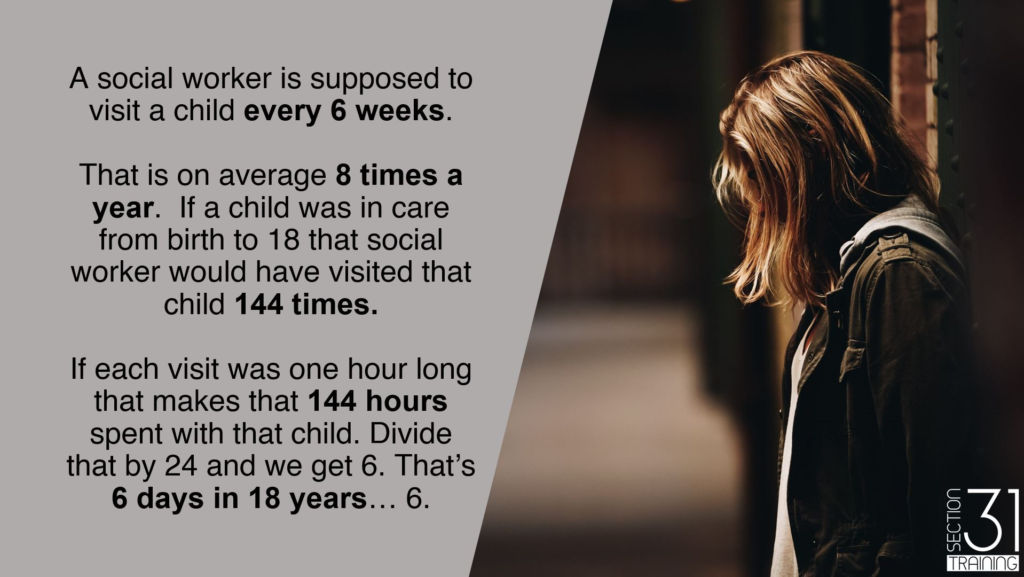
The harsh reality…
Those who make the biggest decisions about children in care see them the least. Foster carers and teachers are the ones who are actually with these children 90% of the time, social workers are only expected to visit every 6 weeks. Learning this made me think, no wonder social workers screwed up so badly when they barely spent any time with me. It made me think, what are they actually basing their decisions on? Whenever they did see me I would either tell them to fu** off or just say whatever I needed to, to make them go away. They ticked the box saying they had listened to my voice, but had they really?
I realise now that a lot of the decisions that were made were based on what was written about me and what others had said about me. They based their decisions on the opinions of others. After reading my files most of what was written was focussed on my bad behaviour, the good days were summarised and the bad were documented in great detail which didn’t really paint a very balanced picture of what was going on for me inside.
Whenever I moved in with new carers I would be a good boy for a few months or so. When I got attached I would become very anxious and begin sabotaging the placement (I didn’t actually know that is what I was doing at the time). I was so used to people leaving me that abandonment is all I really knew. I had learned that liking leads to loving, loving leads to rejection, pain, and suffering. I was so convinced people would leave me that I would reject them before they could reject me, to regain some control over what I thought was inevitable. It hurt less for me to get rid of someone I liked than someone I loved getting rid of me. Whilst I was feeling this way I would kick off in the home, I would kick off at school and when the social worker did come I would say “I hate it here!”. On paper it would seem that the placement is breaking down, I’m not managing at school and when asked what my feelings where I would say I wanted to move.
When you look at it like that it does look like moving me is “for the best” and also it seems like the social worker is fulfilling my wishes by doing so. However what I really needed there was a huge amount of support, I needed people to stick by me and prove to me they will not abandon me. I had grown to love those carers and I was scared. I didn’t want to move at all and when the social worker did move me I almost immediately missed the carers I had moved from, I felt abandoned, I felt like like the social worker had taken people I loved away from me. The move had proved to me that people will leave, because in the end, it felt like they did. This further compounded my attachment issues.
This is one example of many where social workers were trying to do what was right but actually were inflicting further harm and further compounding my traumas.
As a young care leaver, before I learned about the complex realities of this system, I would do public speeches to large groups of social workers. I would tell them that they do not see children enough, that they don’t spend enough time with children to get to know them. Every social worker there would agree with me, but after learning about this system from the other side of the fence I realised that this is not because they do not want to see children more. Social workers would much rather have just a few children that they work closely with, that they see frequently. Many would love to go to that child’s big football match or see them perform in a play. Many of them would love to be able to be there whenever that child needs them to be.
Despite what they want, the system doesn’t allow for it. Social workers are spread very thin and they do not have the time to be as much a part of that child’s life as they would like to be.
It is not because they do not want to be there, it is because they can’t. Many social workers are juggling thirty plus families, many of which are out of area and they are drowning in paperwork. A modern day social worker simply cannot do the job they set out to do. This is the sad reality social workers face.
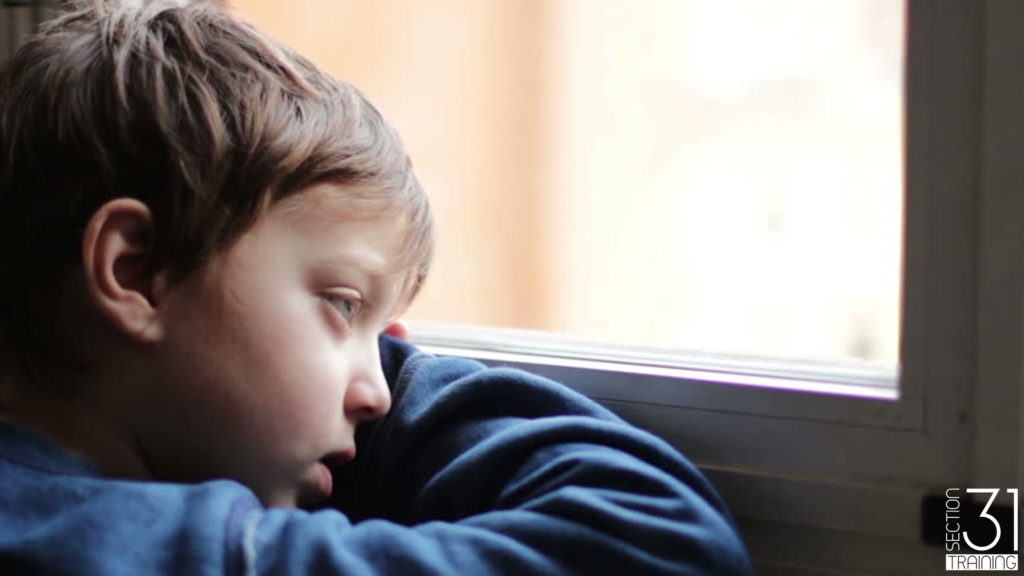
Social Workers did not intentionally ruin my childhood
When I read through my files one thing was very clear to me straight away. Social workers were not intentionally ruining my life. Actually what was happening behind the scenes was quite the opposite. The reality was that social workers were working tirelessly to get things right for me, they were always trying to do the right thing. I even read a statement from one social worker who was fighting to keep my brother and I together, she said it would “break her heart” to see us split apart. It was actually her who embedded it into our care plan that “the boys need regular contact”. She even stated that “refusing contact should never be used as a punishment”. The contact arrangements which she put on paper meant that contact always happened regardless of how we behaved, it meant that our bond was never truly severed. Despite us being split apart we had frequent contact throughout our time in care and it is that that allowed us to exit the system as brothers rather than strangers. What this social worker did meant that to this day my brother and I hold an unbreakable bond and still see each other regularly.
I could see also that the social workers were not always in control of things either, it was a team of decision makers that had control, much of the time social workers were just the messenger.
Social workers were not just making quick decisions, they were having meetings, and meetings about meetings, to ensure that our needs were met. They got so many things wrong as I mentioned but the bottom line is, I can see now that they were always trying to do what was right. However, I am only able to see this as I accessed my files, worked in system and met people from my past. Many care leavers won’t do this.
Part of my recovery journey involved going back and finding people from our past. Mainly I wanted to find the foster carers and the children’s home staff, I wasn’t too fussed about finding social workers. However through the work I have done over the years I have bumped into a few of my old social workers and to my surprise they remembered me and were happy to see me.
One social worker I bumped into, who I remember verbally abusing on many occasions took me out for a coffee and I told her about the life I had after her time with me and I could see she was visibly upset. She told me she felt partly to blame. It was clear that the life she witnessed, the side she saw, was very different to the one I was actually living back then. I am an adult now, I am able to articulate things now that I wasn’t able to as a child.
I could see that this person only ever wanted the best for me. I wasn’t just a case or a number to her, I was Scott and she never forgot about me. That in itself was quite healing. I think it was this experience that made me reflect on every social worker I had ever had and realise that they were not bad people who do not care, they were good people who didn’t understand.
As I told her about the moves, the abuse, the homelessness I saw a tear roll down her face and I thought to myself, this is not her fault. Despite the life I had and everything I had endured over the years, I did not want this burden on her and it is then I put my hand on her shoulder, looked her in the eye and said “I never hated you, I hated the social worker”. She smiled at me and told me how proud she was of what I had achieved in life and what I had overcome.
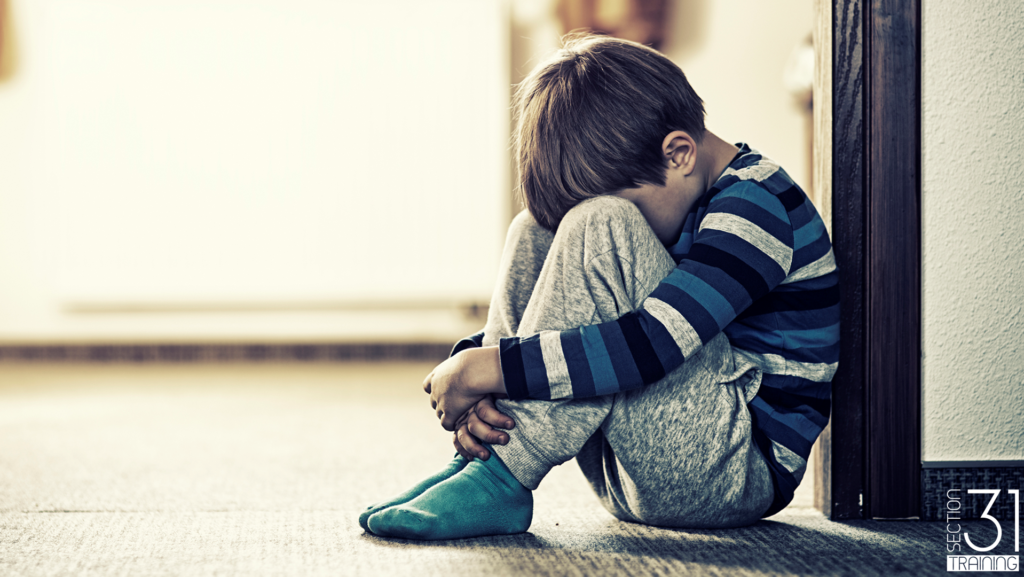
Beneath the anger, the swear words and the frowns there is a message that needs to be listened to.
I am going to assume that if you are still reading by this point, you are probably a social worker or are on your journey to become one. If you are I don’t want you feeling like your work is all for nothing. Without social workers there is no deterrent for abuse, there is no system. Social workers are the foundation of this system and despite many peoples attitude towards them they are very much needed.
Of all the issues I have spoken about here I feel that most of the problems can be resolved by improving communication. Children need to know what is going on in their lives. They need to know what is going to happen and why things have happened in their past and they need to have their narrative listened to and respected. Without that they live in a constant state of anxiety not knowing when or why the next painful event will come. If things are not explained properly all they are left with is the default feelings which are “nobody wants me”, “nobody cares”, “nobody listens”. As the orchestrator of their lives you will nearly always be blamed. Children do not know what you are doing in between visits, if you do not communicate with them, as far as they are concerned you are doing nothing, your have not listened and you do not care.
If you can’t do something, be honest and let them know why. If something they have asked for takes months to sort out, call them to let them know that your working on it otherwise they will feel you have done nothing. You may not be able to visit children as regularly as you would like but it is 2021 and there are so many ways to communicate now without even leaving the office. Understand that your narrative will differ to theirs and theirs should always be at the heart of every decision made.
You cannot base all of your decisions purely on what you read or on what professionals say. Encourage those around the child to report information in a way which helps you understand who that child really is, not just what they do wrong and what their problems are.
The only ones who really know that child are the foster carers but currently they are not feeling listened to. Change that. You cannot see your children as much as you would like, I get that, but there are many people who can and do spend that time. Those people need to be listened to and supported, they are your eyes and ears.
Do not take any attack personally but don’t simply brush it all off and ignore it either. Beneath the anger, the swear words and the frowns there is a message that needs to be listened to and you will learn that often that message isn’t “I hate you” it’s “I hate social workers” or “I hate the system”. When you understand the experiences they have had, when you learn the child’s narrative you will totally be able to empathise with that, it will make sense.
Make it your mission to prove them wrong about social workers rather then becoming defensive and upset. Show them your human side, admit your mistakes, you are not perfect and that is ok, nobody is.
I have met many social workers who have amazing relationships with the children they work with and I have met many who do not. The only real difference between them is how they communicate.
Instead of waiting for the system to change, change how you interact with people on a daily basis. When you understand that you have the power to change how you communicate you can change a persons experience of the system. An amazing social workers isn’t somebody who always gets it right, what makes them amazing is owning up, apologising, talking to people in the right way, empathising with them and showing them your human side.
It doesn’t matter how much love you have in your heart, how hard you are willing to fight for the children under your care, you still have a lot to prove to a child who has been hurt by so many.
And lastly, if you leave, leave properly. Don’t just vanish. What causes the deepest traumas isn’t people leaving, it’s how they leave. Even if you feel that that child will be glad to see the back of you, even if they have given you nothing but grief, do not be just another adult that has walked out in their life. Communicate, communicate, communicate.
So yes I grew up hating social workers but please understand why and understand that it wasn’t the people I hated, it was what that role had represented throughout my life. It is only now I can see the other side, I would never have been able to as child. I was living a tough life that was out of my control and blamed the person who was in control at the time, that’s all it was. I just wish I could go back and tell social workers the things I am able to articulate now.
It is too late for me, but it is not to late for the children you care for now.
My full life story is now available via an online video based course. .

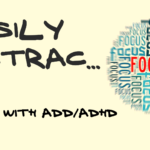

Thank you for this! It really did help me, I am a young girl that recently turn 18 and I, myself had a bad experience with a social worker it’s nice to know that I’m not alone in this.
Thank you for sharing your experience, I know it probably wasn’t easy for you to re-live your experience.
Thank you.
My girl is struggling to verbalise where she wants to be after college she has been in care from two years old and had nine different homes before finding her way to us at nine. She wants to and is smart enough to help children who have shared her path but can’t stand the thought of being a social worker.
I wish she could read this but for obvious reasons she can’t.
I am glad you are doing well xx
I am so proud of you Scott. Y ou are making a difference to so many young lives through your work. You are giving back and trying fix a system which failed you a system which also works with its hands tied behind its back. I remember speaking up for a child at L A who didn’t want to be alone with his father whom he loved but was frightened of because of past abuse . When I told him that his son was too frightened of him he stormed out. But when his social worker said to me well done she would have loved to have said that to him but because of the system wasn’t able to. You are a highly intelligent you man who could do lots of work but have chosen to work to improve the lives of other children. Doing this must be very cathartic for you Scott well done.
Honestly, I still struggle with hatred and loathing for social workers. I still see them as having ruined my life and destroyed my brother’s life. I still see them as arrogant, inept, ignorant and detached. I still think it would be better if they had never been involved. I still believe that every social worker I ever met was, without exception, a complete arsehole.
Now I know more about myself and can express myself more, the labels the social workers used seem even less appropriate to me now than they did then. The models on which they were basing their usually disastrous decisions seem even less relevant. Much of what they did now strikes me as flat-out abusive.
They sent my brother to a “special school” that was closed down following an independent inquiry. They had been abusing the kids in their care for years. One of those kids was my brother. He never recovered.
They lied to me at every turn. They deliberately withheld vital information. Not one of them ever told me what was going on. Not one of them even ever made so much as the slightest attempt to explain. They just swooped in from on high and played God.
I still hate each and every single one of them.